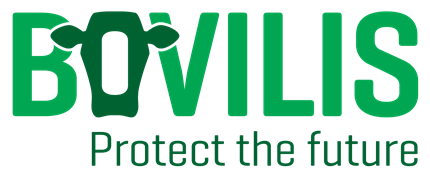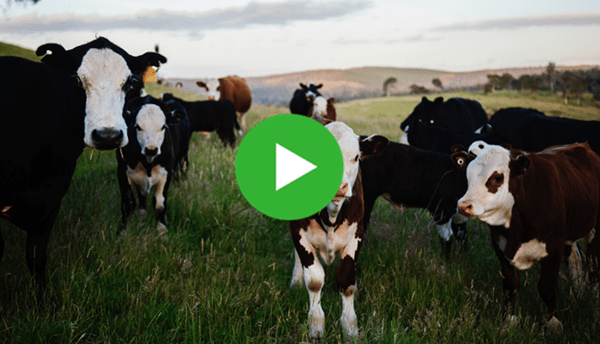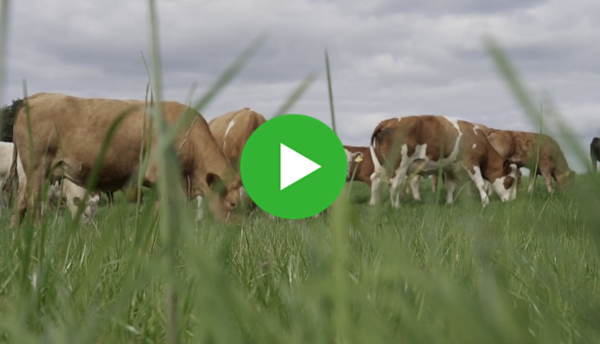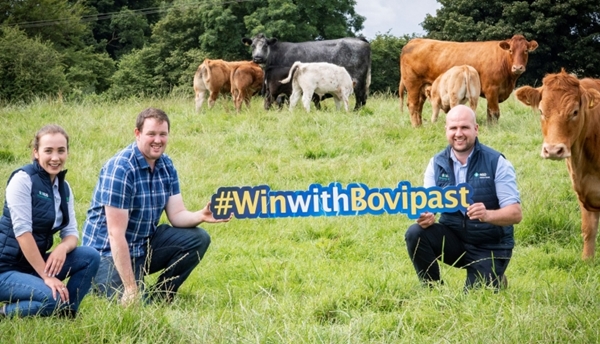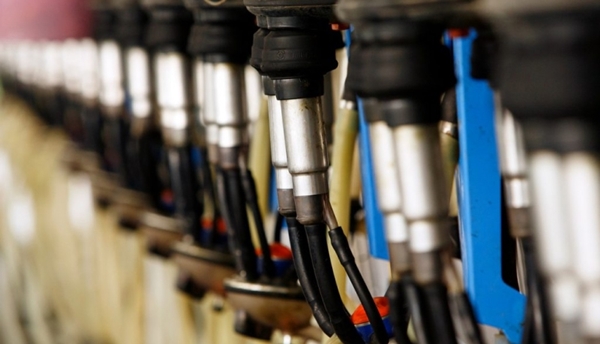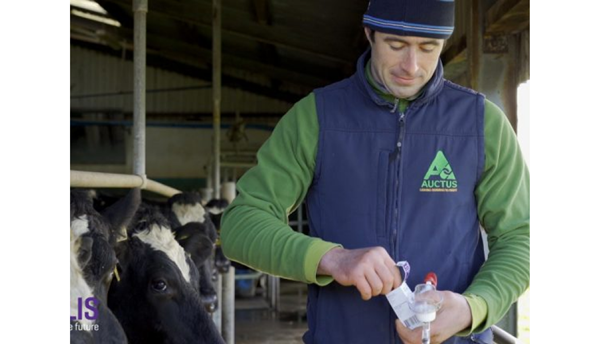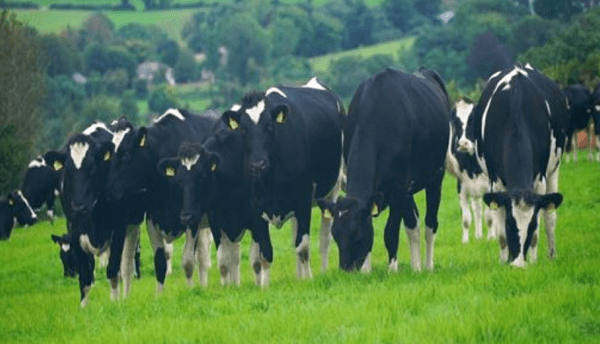

NEWS
Calf Pneumonia – Why prevention is better than cure for Bandon dairy farmer
18th March 2022
TAGS
“Vaccinating against pneumonia is cheap reassurance and ensures long-term protection for a cow” says Bandon dairy farmer, Owen O’Brien
Owen runs a 74 cow-dairy herd alongside his wife, Rosaleen, his three children, Daniel, Amy and Ciaran, and parents who remain very active on the family farm.
Like so many farms across the country, the O’Brien’s have made significant strides over the last number of years to overcome calf pneumonia outbreaks on farm. Calf pneumonia is the most common cause of death in cattle of all ages over one month old. For calves that do survive death, an outbreak of calf pneumonia can lead to significant costs in terms of reduced growth rates, lower milk yields, increased feed requirements and veterinary attention.
Owen O’Brien explains his experience with calf pneumonia on farm while local vet Kevin O’Sullivan gives some tips to stay ahead of calf pneumonia as we near the latter part of the calving season
The cost of pneumonia
Pneumonia is a multifactorial disease meaning any factors can influence the onset of an outbreak. Two important viral causes of pneumonia are RSV and PI3 viruses while one of the most common bacterial infections can be caused by Mannheimia haemolytica. The severity of pneumonia can vary from reduced appetites, mild nasal discharge and coughing in a group of calves, to severe pneumonia causing death.
According to Department of Agriculture Quarterly Surveillance Report 2020, in the first three months of 2020, Mannheimia haemolytica was the most common pathogen identified on post-mortems of cattle examined by the regional veterinary labs.
“Pneumonia will kill or, at the very least, significantly compromise lung function and impact on heifer growth rates,” says Kevin O’ Sullivan from Glasslyn Vets. Preventing the problem from arising in the first place is key and management is reliant on a good understanding of the causes and risk factors.
What makes calves susceptible to the disease?
Calf pneumonia is a complicated, multi-factorial disease. Healthy animals can carry Mannheimia haemolytica and Pasteurella multocida as commensals without developing clinical signs. Infectious agents, environment, and the calf’s immunity status are all factors that can determine the onset of an infection.
A calf receiving poor-quality or inadequate levels of colostrum is one of the biggest factors affecting immunity, making them more susceptible to infection. Several stress factors such as poorly ventilated and overcrowded housing, grouping, changes in weather and transportation can also increase the risk of pneumonia. Once the calf is stressed, the ability of their immune system to fight infection is significantly reduced.
Prevention is better than cure
Disease prevention is key to avoiding the onset of pneumonia on farm. “My motto is prevention is better than cure on farm. Good quality colostrum, good hygiene practices, good housing management and an effective vaccination programme must go hand in hand to reduce the risk of pneumonia. The results are clear as I find my cows are heathier, fitter animals and don’t get any setbacks”, says Owen.
Alongside building immunity, reducing stress and minimising exposure to infection, Kevin states that one of the best routes for preventing a costly pneumonia outbreak is vaccination along with good calf management. It stimulates the immune system to produce antibodies, which protects the animal against infectious pressures once they are challenged by those pathogens.
“By vaccinating against pneumonia, you are reducing the risk of outbreak, helping the animal thrive and reach their weight targets at weaning, housing and pre-breeding. This will ensure they are in optimal condition when meeting the bull in ~20 months’ time” states Kevin.
Why choose Bovipast RSP?
Owen uses Bovipast RSP in his calves from two weeks of age and gives the booster shot four weeks later. Bovipast RSP contains IRP technology which inhibits Mannheimia haemolytica from replicating which reduces the infection from developing. It provides the broadest protection against bacterial pneumonia caused by Mannheimia haemolytica and protects the animal against two of main viruses, RSV and PI3. As pneumonia can result from bacterial or viral infection, it is important to choose a vaccine that provides a broad range of cover against some of the most common infectious pathogens challenging calves.
For full protection, calves should be vaccinated with a 5 ml injection under the skin, from two weeks of age and given their booster dose four weeks later. The correct use and timing of vaccination are vital to their success and always read the manufacturers recommendations.
When vaccinating, it is recommended to vaccinate all animals in the group to minimise the infectious potential. As the disease status on every farm is different, vaccination protocols will vary. Speak to your local vet about the right strategy for your farm.
Compatible with Bovilis IBR Marker Live
Bovipast RSP can also be administered at the same time as Bovilis IBR Marker Live from three weeks of age. Vaccination with Bovilis IBR Marker Live may be required where IBR has been detected on a farm or where the risk of introduction of the disease is high i.e. purchasing stock or animals returning from shows or sales.
For more information, talk to your veterinary practitioner.
TAGS
Sign up to Bovilis® product and event information
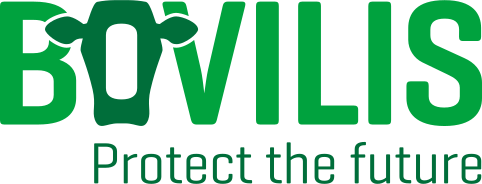
MSD Animal Health
Red Oak North, South County Business Park, Leopardstown,
Dublin 18, Ireland
vet-support.ie@msd.com
PHONE
CATTLE DISEASES
